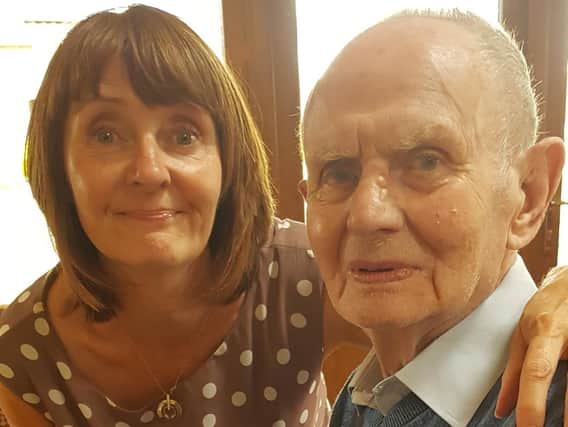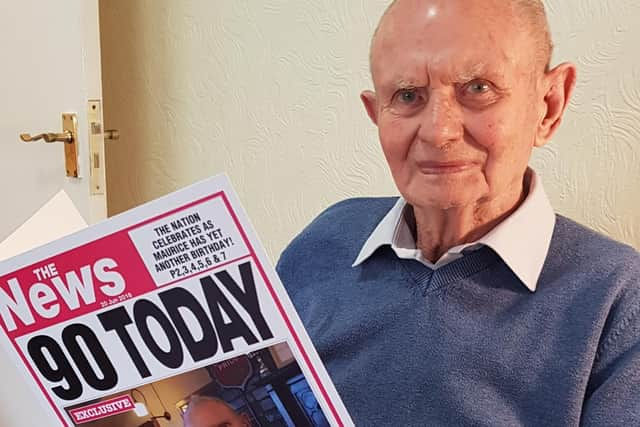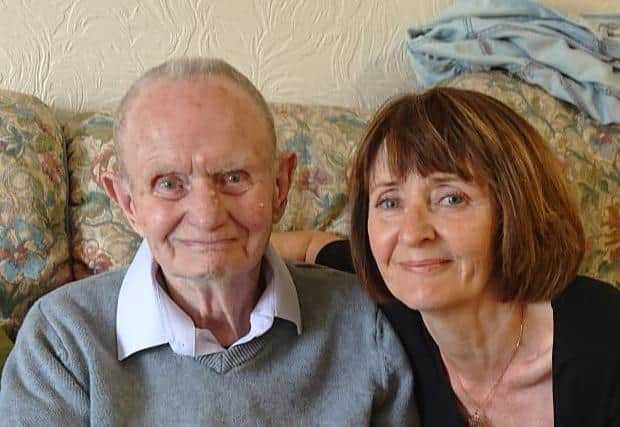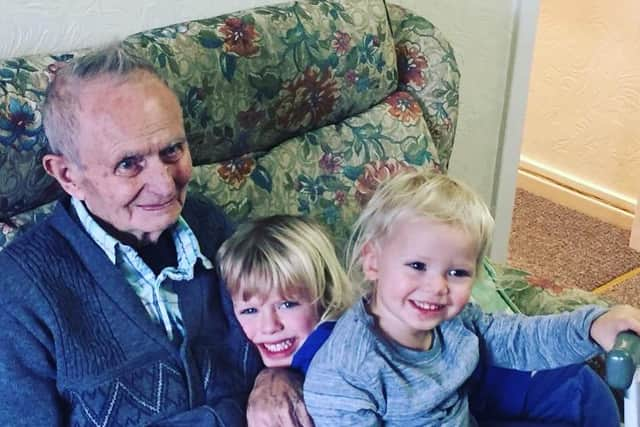Warning of mental health crisis among family of people with dementia due to lack of support and contact with loved ones


One carer, Mary Beardsley, who lives in Doncaster, suffered a “nightmare journey” while trying to support her 92-year-old father Maurice Fitzgerald who had vascular dementia. He had been hospitalised earlier in the year and discharged into a care home at the start of lockdown.
She said: "After seeing him every day, we didn’t realise that we wouldn’t be able to see him for three months.
Advertisement
Hide AdAdvertisement
Hide Ad“When someone goes into a care home and you don’t see them, you lose all your power.”


Though Mrs Beardsley praised the individual nurses and carers who looked after her father, she was shocked when she was finally able to see him that he had lost a significant amount of weight.
She said: “He didn’t want to eat. I’ll never know for sure but I think he’d made up his mind that we didn’t want to see him.
“When I saw him and I saw he was basically skin and bone and had no idea who I was. I sat on the floor, put my head on his knees and tried to talk to him for two hours.
“It was such a shock to see how much he’d deteriorated.


Advertisement
Hide AdAdvertisement
Hide Ad“We are going to have a mental health crisis for carers and family members when people see that deterioration of their loved one. It’s horrendous. I don’t think I’ll ever come to terms with the last seven months.”
Mr Fitzgerald died on 25 October and Mrs Beardsley and her daughter were able to be with him in the last 48 hours of his life.
Mrs Beardsley urged families who are in the same position to do practical things like getting power of attorney over health and approach the public health lead in their town to ask for a risk assessment from infection control, which may help them be able to see their loved ones if they wear appropriate PPE.
She said: “You have got rights and people with dementia have got rights. It’s very hard because people are worn down.”


Advertisement
Hide AdAdvertisement
Hide AdShe advised families not to be hard on themselves but urged the Government to take action to help families.
She said: “People are dying of loneliness and heartbreak and it’s not going to go away.”
Liz Tomlinson, an Admiral Nurse, a dementia specialist for Dementia UK, said the lack of stimulation for dementia sufferers and respite for families is proving an enormous challenge.
She said: “Dementia symptoms tend to be worse in lockdown because there are no other services at the moment and areas of support, like lunch clubs, are closed. The lack of social stimulation is causing more deterioration for a lot of people with dementia and, in some cases, the carer themselves might have a health problem that means they have to self-isolate. It’s a double whammy.
Advertisement
Hide AdAdvertisement
Hide Ad“For carers, it’s so difficult, there’s not much they can do. With the pandemic, there’s no structure, you can’t plan anything.”
She said she has seen a huge rise in families seeking help. Dementia UK has a helpline for anyone who needs help or advice while making decisions about or looking after a loved one and provides Admiral Nurses for support.